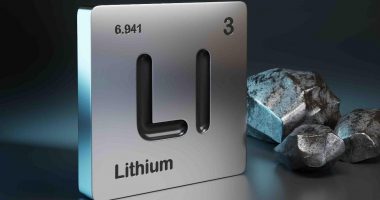- With a share price that went from as low as $1.10 to as high as $5.50 in 2020, what’s in store for Mesoblast (MSB) in 2021?
- The company had a rollercoaster of a year, receiving approval for its COVID-19 trial, then announcing in December that it was called off
- Mesoblast saw its biggest jump when it revealed that it was joining the COVID-19 fight
- The company is using its remestemcel-L drug on patients who developed acute respiratory distress syndrome arising from COVID-19
- Enrolment began in April with aims to enrol 300 patients to determine whether remestemcel-L improves the survival rate in those infected with COVID-19
- Ultimately, Mesoblast saw its share price drop as much as 36 per cent when patient enrolment closed as valid data couldn’t be obtained in an objective way
- However, full recruitment is expected to be completed in Q1
- According to Bell Potter, the ASX 200 company is expected to report top-line results from two phase three trials in Q3
- Mesoblast has ended the day 2.67 per cent in the green with shares trading at $2.31
With a share price that went from as low as $1.10 to as high as $5.50 in 2020, what’s in store for Mesoblast (MSB) in 2021?
The company had a rollercoaster of a year, receiving approval for its COVID-19 trial, then announcing in December that it was called off.
The highs
In March, Mesoblast revealed it would join the COVID-19 fight, with its remestemcel-L product to be used on patients who develop acute respiratory distress syndrome (ARDS).
Remestemcel-L is an investigational therapy that is made up of mesenchymal stem cells (cells that come from different parts of the body) that are taken from an unrelated donor.
It has been proven to significantly enhance lung function in patients with chronic obstructive pulmonary disease (COPD).
Given both COPD and ARDS affect the lungs, Mesoblast believes that remestemcel-L is likely to have a similar outcome in COVID-19 patients.
When this was announced, Mesoblast’s share price jumped 22 per cent to $2.24.
Patient enrolment began in April, with the trial aiming to determine whether remestemcel-L improves the survival rate in COVID-19 patients.
This recruitment followed encouraging results, which showed an 83 per cent survival rate in ventilator-dependent COVID-19 patients compared to a 12 per cent survival rate in standard care patients.
Up to 300 patients will take part in the trial and will either receive two infusions of remestemcel-L or a placebo.
The company is aiming to achieve a primary endpoint of 43 per cent reduction in morality at 30 days for treatment with remestemcel-L on top of maximal care.
Shares jumped 6.65 per cent on the back of this news to trade at $3.37.
Ultimately, Mesoblast saw its share price jump to over $5 when it received a tick of approval from the Data Safety Monitoring Board (DSMB) to continue with its COVID-19 trial.
This approval showed that remestemcel-L is effective enough to explore further but not effective enough to be fast-tracked to market.
Mesoblast’s shares jumped to $5.13 on the back of this news.
The lows
Unfortunately, with the highs also comes the lows.
Mesoblast faced its biggest hit when patient enrolments closed early as valid data couldn’t be obtained in an objective and clinically rigorous way.
Only 223 of the 300 patients were treated as DSMB noted that the trial is unlikely to meet the 30-day morality reduction endpoint.
However, the DSMB recommended that the 223 patients still be followed-up as originally planned.
This news caused Mesoblast’s share price to drop 36.61 per cent with shares trading at $2.39.
Unrelated to its remestemcel-L COVID-19 trial, Mesoblast also saw its share price drop when it missed the mark in its phase three trial for chronic heart failure.
The aim of the trial was to test Mesoblast’s rexlemestrocel-L product on whether it reduced recurring non-fatal decompensated heart failure events.
Essentially, decompensated heart failure is when the heart cannot eject or take in blood.
Despite not achieving the primary endpoint, Mesoblast found that patients who received both rexlemestrocel-L and existing therapies such as drugs, had a 60 per cent reduction in the occurrence of heart attacks and stroke.
These results indicate that rexlemestrocel-L reduces mortality rates but does not significantly impact cardiac mortality.
Mesoblast believes that this will support a potential path for rexlemestrocel-L to be approved in patients with chronic heart failure.
The company is now planning to meet and discuss these results with the United States Food and Drug Administration.
When this was announced shares closed 12.3 per cent in the red at $3.98.
2021 and beyond
While it’s unknown what 2021 will be like for Mesoblast, the company is expected to complete full recruitment for its COVID-19 trial during Q1.
Additionally, according to Bell Potter, the ASX 200 company is expected to report top-line results from two phase three trials in low back pain and advanced heart failure in Q3 2021.
Over at the Wall Street Journal, the general consensus is the healthcare stock is overweight, although five analysts hold a buy target, three say hold, and two recommend a sell.
Only time will tell if the company will jump back up to its $5 share price.
Mesoblast has ended the day 2.67 per cent in the green with shares trading at $2.31. The company has a $1.322 billion market cap.






